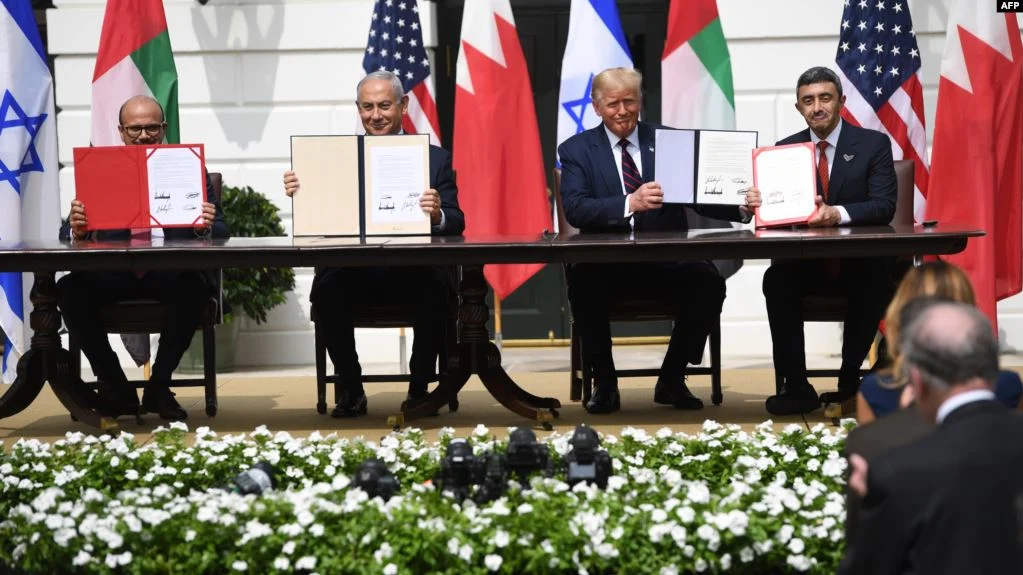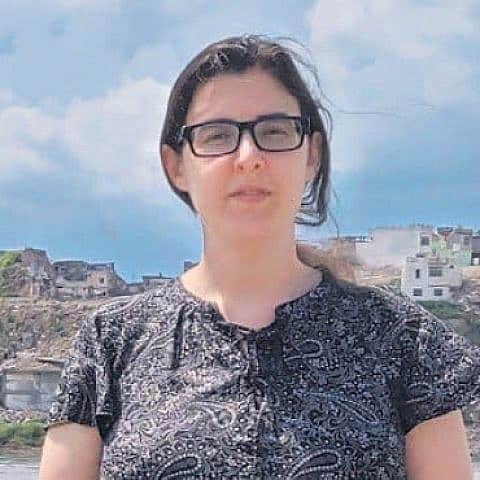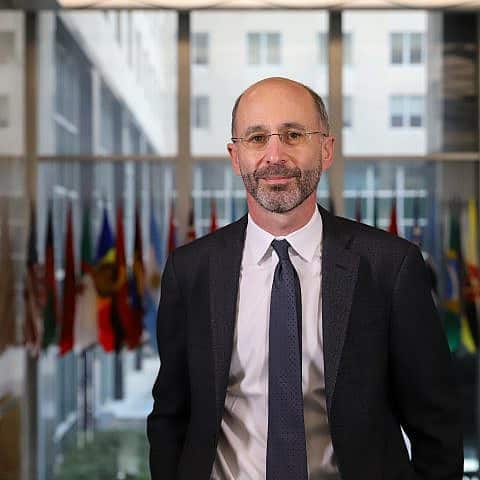I became your enemy because I tell you the truth
“You can fool some of the people all the time and all the people some of the time,
but you can’t fool all the people all the time.” A. Lincoln
Despite the absence of formal normalization, Riyadh and Jerusalem are ripe for greater cooperation, observers say.
Despite the lack of a formal normalization event between Israel and Saudi Arabia, the countries have a shared interest and desire in developing defense cooperation, including the joint detection of Iranian aerial threats with American assistance, observers in Israel and the United States say.
Earlier this month, the head of United States Air Forces Central, which is the air component of the U.S. Central Command (CENTCOM) in the Middle East, Lt. Gen. Alexus Grynkewich, told The Jerusalem Post that the U.S. is working on creating a digital connection between Israel and Gulf Arab states that can be used to issue alerts over fast-moving threats such as cruise and ballistic missiles.
Bradley Bowman, senior director of the Center on Military and Political Power at the Washington-based Foundation for Defense of Democracies, and former national security adviser to members of the Senate Armed Services and Foreign Relations committees, told JNS that the establishment of an Israeli-Gulf-U.S. defense architecture in the region would be a “nightmare scenario for Tehran.”
“As far as I can tell, Israel and Saudi Arabia are already engaging in some level of security cooperation below the radar, but they have just barely begun to tap into the potential.” Bowman, a former Black Hawk helicopter pilot and assistant professor at the West Point military academy, stated.
“If normalization between Riyadh and Jerusalem occurs, this security cooperation can go to a whole other level and that would serve the interests of Washington, Riyadh and Jerusalem.”
Iran, for its part, wants to keep its adversaries “weak and divided,” said Bowman, and that means trying to counter any movement towards a combined American-Arab-Israeli regional security architecture.
“Tehran’s worst day would be when Gulf Cooperation Council countries, Israel and the U.S. establish a combined regional security architecture that enables each country to more quickly detect and defeat threats emanating from Iran and its proxies,” said Bowman.
He noted that senior American government officials traveled to Saudi Arabia in February for U.S.-Gulf Cooperation Council (GCC) Working Group meetings focusing on integrated air and missile defense, maritime security, Iran and counterterrorism.
“Step one is the understanding that Riyadh, Abu Dhabi, Manama and Jerusalem confront a common threat. Most Arab leaders have known for a long time that Israel is not the threat. What is new, after the Abraham Accords, is some Arab governments are finally willing to say it publicly and act accordingly,” said Bowman. “It is widely understood that the Islamic Republic of Iran and its terror proxies are the real threat to regional security.”
Bowman said that establishing a “single pane of glass,” meaning creating the technical means for each partner country to see a common threat picture, would make it more difficult for Iran to conduct drone and missile strikes.
“One of the challenges is to create sufficient trust so that the participants are willing to share information with one another and potentially join common networks,” he said. “The U.S. military could ease and expedite this process by playing the role of aggregator and integrator, potentially serving as a central node in the effort to create some sort of common threat picture.
“For those of us interested in deterring and defeating Iranian aggression, few things are more important than advancing a combined regional security architecture,” Bowman said. “If there is political will in each of the capitals, it is absolutely feasible.”
No declarations of an “Arab-Israeli NATO”
Professor Uzi Rabi, director of the Moshe Dayan Center for Middle Eastern and African Studies Studies at Tel Aviv University, said it is highly likely that Israel and Saudi Arabia would be interested in promoting such cooperation, but that Riyadh is also not interested in any public declarations of “an Arab-Israeli NATO. The Saudis don’t want reports like that floating around.”
In addition, said Rabi, for the U.S., extending the Abraham Accords in this manner is a way of telling Saudi Arabia “that they’re not leaving the region, and that it’s wrong to assume that they are. In light of the fact that China brokered the Saudi-Iran [rapprochement] agreement, the U.S. is also conducting damage control.”
According to Rabi, it is certainly reasonable to assume that the Saudis will be interested in developing such cooperation, but at this stage, under the radar and not publicly. As always with Saudi Arabia, the scope and depth of cooperation with Israel are based on the U.S. approach towards Saudi Arabia. This is the litmus test, and what Israel does is less important. The Palestinian issue is not decisive.
What is decisive is how the U.S. responds to Saudi requests for a military umbrella, a civilian nuclear program and the full known Saudi wish list.
“This would be the required ‘payment.’ The more the Americans meet Saudi requests, the more the extension of the Abraham Accords grows,” said Rabi. “Hence, this is not a bilateral Israeli-Saudi platform. One must look at all of the table’s legs.”
All it takes for Evil to triumph is for good people to do nothing
https://www.jns.org/abraham-accords/israel-saudi-relations/23/7/19/303910/?_se=ZmVkZXJpY28uYmVudHNpa0B0aW4uaXQ%3D&utm_campaign=Daily+Syndicate+-+Wed+July+19+2023&utm_medium=email&utm_source=brevo
Michael Loyman



